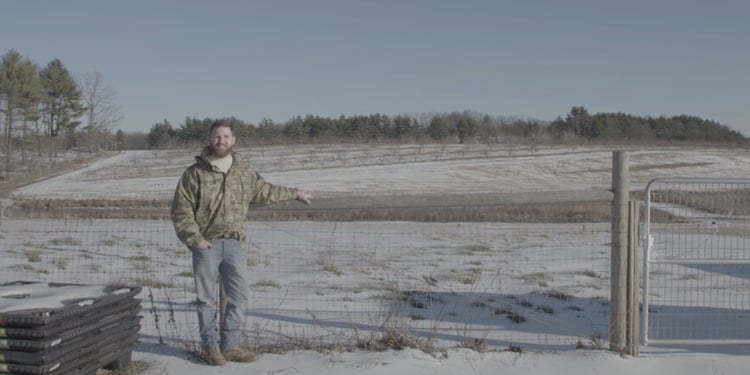
Army veteran and past HBX CORe participant J. Holden Gibbons talks about how CORe allowed him to understand the language of business and help grow his non-profit, Veterans Combating Child Hunger.
Tell us a little bit about your organization.
When I was serving in Afghanistan with the Army, I saw how it had little arable land and lacked a lot of core assets, making it hard to support life. It made me see the United States in a new light; we live in this bountiful nation but don't value the land, water, or natural resources in the way we should. There are a ton of areas where we can improve efficiencies and reduce our reliance on fossil fuels and technology.
I asked myself, how can we sustainably reuse this land, reduce greenhouse gases, get veterans involved in their community, and improve certain communities that oftentimes have poor nutrition? So, upon returning home, I founded Veterans Combating Child Hunger, an organization that seeks to involve the veteran community in sustainably farming undervalued real estate assets in communities throughout the United States.
How has CORe has helped with this venture?
HBX CORe is the type of program that helps you make a quantum leap and take what's in your head and translate it into real world success. One of the really nifty things about CORe is that the skill set they give you is directly applicable to what you are going through as an entrepreneur or a small business owner. On a day-to-day basis, I'm literally astounded by how often I use the coursework.
For example, with Economics for Managers, I'm constantly weighing how to utilize the farm's assets. Is it worth me spending a few hundred dollars to take a flight? That might not seem like the best short-term expenditure, but if I can expand the network which then amplifies later on, that may be a good decision to make. I am asking myself questions like what's the cost basis of this? What am I giving up to pursue that? Would I be better off not pursuing that?
Financially speaking, I really wanted Veterans Combating Child Hunger to be a self-sustaining corporation. We want to offer value added, we don't want to consistently be asking people for funds to get started. In accounting, we learned about “going concerns” so now I ask myself, what is the best way we can use our time, use our assets, to be able to bring sustainability and add more value to society?
What advice would you give entrepreneurs considering CORe?
Before you sign up or apply for CORe, I’d suggest you do a gut check and ask yourself whether you have the time to dedicate to mastering the material and building a network. To truly be successful in the program, it takes a lot of effort, it takes a lot of proactive decision-making, and you're really going to be expected to bring a large amount of focus. Not only that, you're also expected to integrate with your cohort and to help them through the platform.
You're expected to be a member of a community, and you are expected to put in a healthy amount of work. You need to look within yourself and ask, “Am I prepared to take three very intensive courses that require me to be the fulcrum of my learning?” In CORe, you’re conducting your own train. That train can take you as far as you want to go, and if you're on board all the way, there's really nowhere that you can't go.
The CORe community consists of a rich and diverse group of learners. Want to learn more about other students who've participated in the program?








